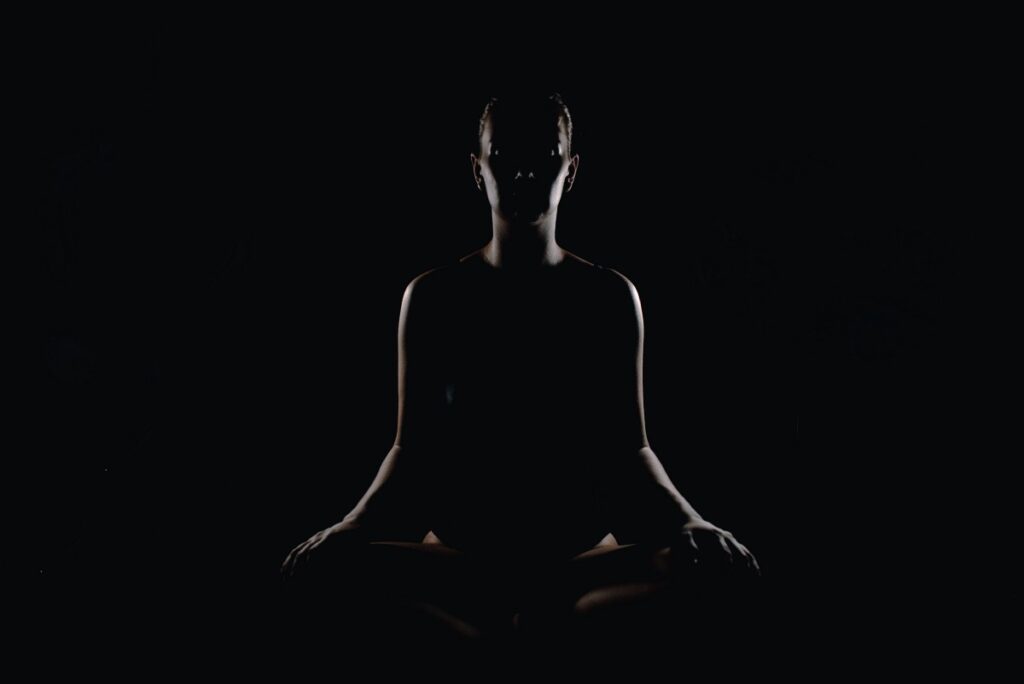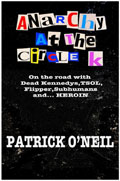This is a lecture/presentation on Spirituality that I gave at Marymount California University for their Wellness Program: February 11th, 2022.
Spirituality
Spirituality is universal—it touches all of us. It is a vast concept with room for many perspectives. The general idea is that it includes a sense of connection to something bigger than ourselves, and more often than not, it involves a search for meaning. Spirituality has been described as a sacred experience, or the divine, or a sense of awareness and connection.
For some spirituality is their association with a church, temple, mosque, or synagogue. Others pray, seeking a personal relationship with God or a higher power. Some say it’s their connection to nature, and Mother Earth, or find it in the arts and creativity. And much like our ever-evolving sense of purpose, our definition of spirituality may change throughout our life, adapting to our own experiences and relationships.
I came to spirituality through recovery from addiction. I was a drug addict for 20+ years. I went down a very dark road and lost myself. My addiction removed me from the whole of society. I lost my sense of purpose, my sense of connection, and my joy. I had become as self-centered and isolated as one can get. When I started my journey in recovery, I had to reevaluate everything and find meaning, and faith. Through the 12 steps of Alcoholics Anonymous I was introduced to the concept of a higher power. My prior experience with god was the conflict between my parents. My mother was Irish Roman Catholic, my father a Marxist. There were portraits of bearded old white guys in their prospective offices and neither Marx nor God looked that happy. In fact, they scared me.
When people in AA talked of spirituality and a higher power I didn’t know how to react. I thought they were talking about my mom’s god and I was not interested in religion. Then I heard someone at a meeting say, “the opposite of addiction is not sobriety, it is human connection.” And it all started to make sense. I had found my community, when before I was alone in my addiction. With my involvement in AA I was part of “something greater than myself.”
The fact that I actually cared about a group of… well, basically strangers, was astonishing.
But that was as far as my thoughts went. If you were to ask me then, in my early recovery, what spirituality was, I still couldn’t really define it. I felt defeated. I thought I’d never get the program or stay sober.
A few days later I was driving on the 5. Traffic was horrible but moving. You know, that LA bumper to bumper at 70 miles an hour. On the side of the road was an old beat up station wagon, its hood in the air, gray smoke billowing out. A family was huddling around their mother, a baby in her arms. And for that nanosecond of time it took me to pass her, we locked eyes and I felt her fear, anxiety, and despair. I said, “please make sure they stay safe and get home.” This coming from a former addict who used to drive by similar situations and think, better them than me!
It was that moment that I understood what spirituality was. For me it wasn’t the organized religion from my mom that I feared. It was simply caring about someone other than myself, because we were all in this together. We are all part of humanity—we are all part of something greater than ourselves.
Black Elk, an Oglala Lakota Sioux holy man, warrior, and survivor of the Wounded Knee massacre said it a lot better than I can, “The first peace, which is the most important, is that which comes within the souls of people when they realize their relationship, their oneness with the universe and all its powers, and when they realize at the center of the universe dwells the Great Spirit and that its center is really everywhere, it is within each of us.”
Now having said all that I’d like to tell you that I am continually connected, and my spiritual practice is perfect. But it’s not. It is a muscle that I have to exercise, or it gets flabby and weak. I am in constant need of reevaluation and reconnecting. Sometimes I look at what is going on in the world and I retreat, or get angry, or depressed and sad. Something negative happens at work and I feel unconnected and resentful. I question other people’s motives. I blame others. I become avoidant and isolated.
Another incident comes to mind here. Again I was driving… hmmm, there seems to be theme here. But anyway, it again was rush hour traffic but this time it was the morning and on surface streets. There was a massive mess of construction. Three lanes were being merged into one. Drivers were honking their horns, behaving badly. I huge black monster truck was not allowing me into the lane. He kept edging closer to my car, gunning his engine, and honking. But I didn’t let him intimidate me and I merged into the one lane. When we had all passed the construction and it was three lanes again. The truck pulled up along side of me and the driver jumped out. He was screaming obscenities. His face red. Spit flying. He looked deranged. And I thought, this is the humanity I want to be connected with?
But I tend to look at things as black and white – when there’s a lot of gray. Thirty other drivers in front and in back of me didn’t over react and go ballistic. I can’t measure humanity of the acts of one deranged person. In fact the connection I need to make is compassion for those that are not doing well, who are angry, who are unable to cope. If I return the anger then I don’t feel good about myself. In fact, anger makes me uncomfortable these days. Instead I need to be proactive instead of reactive.
Because of incidences like that and many other things I have continually worked to seek out knowledge and refine my spiritual practice. Over the last twenty-one years of my sobriety it has evolved from simply “caring about someone besides myself” to being of service to others, volunteering, and supporting worthy causes. I have followed teachers, through their writings, lectures, ideas, and concepts. I realized I had been going through life avoiding reality—hence the escapism with drugs—and I decided to work toward being fully present, aware of where I am and what I’m doing, and not overly reactive or overwhelmed by what’s going on around me.
That’s when I was introduced to the mindfulness of meditation.
When I’m confused, hurt, fearful, or angry, meditation is where I find my answers.
It is said that prayer is talking to the universe, and meditation is listening.
Now whenever I feel disconnected it is because my spiritual practice has fallen off. I don’t always do what is best for me. Life gets in the way. Work can be hectic. I don’t have the “time” right now, etc. etc. When I’m not in the solution, I become disconnected to the universe.
I’ve been a member of a few mediation groups over the past 15 years. I find that I meditate better in a group setting. The one I’m in now we do a twenty-minute sit, followed by a dharma talk (of course these days it’s on zoom). It’s not really organized. It’s not affiliated with anything. It’s like minded people that I feel supported by and connect with.
Through my mediation I find mindfulness in other parts of my life.
I’m a bass player. The repetitive riff of holding down the beat is a musical mantra. There’s a precision and exactness that keeps me present.
I am also a mountain biker. The rhythmic pedaling, the hum of turning wheels, the total concentration, and being in nature, I consider a moving mediation—and the endorphins help as well.
With a moving meditation, I feel like I am in rhythm with the universe. Literally.
When I am not mindful or I don’t meditate, I feel that I am not.

Spirituality and Emotional Health
I work in a treatment facility for mental health and substance abuse disorder. I see this same spiritual disconnect in my clients that I used to experience. Depression, anxiety, and substance abuse has isolated them from life. In the hopelessness of despondency my clients question the meaning of their existence, or their purpose, and it leaves them feeling isolated and abandoned.
The practices and concepts for spirituality are similar to those recommended for improving emotional wellbeing. This is because there is a connection between the two—emotional and spiritual wellbeing influence one another and overlap.
Spirituality is about seeking a meaningful connection with something bigger than yourself, which can result in positive emotions, such as inner-peace, acceptance, and gratitude.
Emotional health is about cultivating a positive state of mind, which can broaden our outlook to recognize and incorporate a connection to something larger than ourselves. Emotions and spirituality are distinct but linked, deeply integrated with one another.
Many of my clients feel that they are unique in that no one else feels the way that they do—we sometimes call this “terminal uniqueness”. When they enter group therapy, they discover that they are not alone. That there are other people who are experiencing similar feelings. The group then becomes a connection with those people, and a safe place to process whatever it is they need to work on. Someone may say that they are depressed and feel like a failure. And another client may tell them that they have had the same feeling and then tell them what they have done in the past to get through those feelings. With the guidance of a facilitator the community/group becomes a place of healing. The prevailing equation here is: A helps B, and A gets well. It is a process of being of service to others. Putting someone else before yourself. Caring about someone besides yourself. Caring about the group as a whole. And here we are back at the definition of spirituality: A connection to something bigger than ourselves.
When people ask me how that works, I use a quote from Thomas Merton, an American Trappist monk, writer, theologian, and social activist, “You do not need to know precisely what is happening, or exactly where it is all going. What you need is to recognize the possibilities and challenges offered by the present moment, and to embrace them with courage, faith and hope.”
Spirituality influences many decisions that people make. It encourages people to have better relationships with themselves, others, and the unknown. Spirituality can help you deal with stress by giving you a sense of peace, purpose, and forgiveness. It often becomes more important in times of emotional stress or illness.
And without it… we are alone.
Thank you.

Meditation
This afternoon I’d like to share a mediation with you.
I’ve brought a recording I put together with some samples and tones. I have a busy mind with a lot of chatter up there. I can’t meditate to Kenny G, or easy listening pop. I need something to abruptly challenge that loud internal dialogue. So that’s my disclaimer on today’s recording. I hope you enjoy it.
Now before we play the meditation:
Let’s all get comfortable. Relax the muscles in your neck. Plant your feet on the floor. Let the tension leave your body. Close your eyes. Concentrate on your breath. If your mind wanders, let it. Don’t grab or hold onto thoughts. Let them come, let them go.
Play mediation.
Bring your attention back to your breath. When you are ready open your eyes. Feel yourself becoming more present in the room. Take this feeling of being present with you as you go about the rest of your day.

